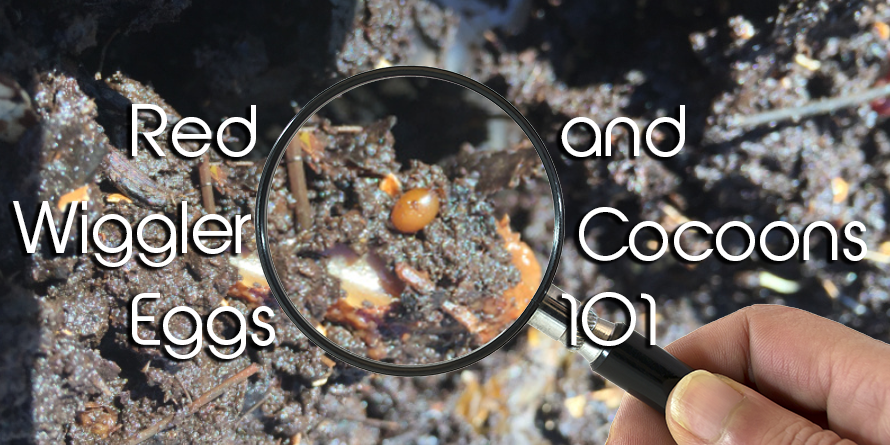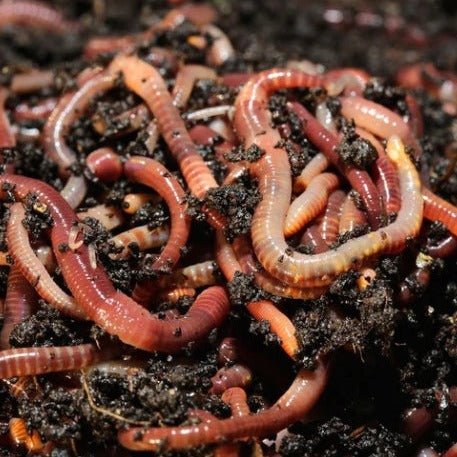Red Wigglers 101: Everything You Need to Know for Thriving Gardens
Red wigglers, or Eisenia fetida, play a crucial role in sustainable gardening practices, serving as efficient decomposers that transform natural waste into valuable vermicompost. Recognizing their environment, dietary choices, and the myriad benefits they provide can change your horticulture method.
Understanding Red Wigglers

Red wigglers flourish in environments abundant in organic material and moisture. Red Wiggler Express. They have a special digestion system that enables them to refine food scraps quickly, excreting castings that are loaded with vital nutrients such as nitrogen, phosphorus, and potassium. These spreadings boost soil structure, improve water retention, and foster beneficial microbial activity, all of which add to durable plant health
Additionally, red wigglers can make it through in varied problems, making them adaptable to various gardening techniques, consisting of interior and exterior composting systems. Their ability to consume big quantities of organic waste everyday settings them as useful allies for both home garden enthusiasts and business growers. By incorporating red wigglers into gardening efforts, one can dramatically boost soil fertility and support sustainable horticulture practices.
Suitable Environment for Red Wigglers
Creating an optimum atmosphere for red wigglers is crucial for maximizing their composting abilities and general health and wellness. Red wigglers flourish in damp, dark, and well-aerated habitats, which closely resemble their all-natural settings in ground cover and rotting raw material. A suitable habitat should supply a temperature level array between 55 ° F and 77 ° F(13 ° C to 25 ° C), as extreme temperature levels can worry or damage the worms.
The bedding product, such as shredded newspaper, cardboard, or coconut coir, ought to be kept damp but not extremely damp, as excessive dampness can cause anaerobic conditions harmful to worm health and wellness. Furthermore, a pH degree in between 6.0 and 7.5 is suitable, making certain a well balanced atmosphere.
Correct aeration is just as crucial; it enables oxygen circulation and prevents the build-up of dangerous gases. A container or bin designed for vermicomposting need to have drain holes to remove excess wetness and advertise air flow. Regular tracking of these conditions is necessary for maintaining a growing red wiggler population, inevitably improving their performance in breaking down natural waste and enhancing yard soil.
Dietary Needs and Preferences

Red wigglers show particular preferences; they are especially fond of softer, decaying products over harder or more fibrous compounds. It is necessary to stay clear of feeding them citrus peels, onion, and garlic in large amounts, as these can be damaging. In addition, meat, dairy products, and oily foods should be omitted, as they can bring in parasites and create unpleasant odors.
(Granite Falls NC Worms For Sale)To keep ideal health, a balanced mix of green and brownish products is suggested. Environment-friendly materials, such as veggie scraps, offer nitrogen, while brownish materials, like cardboard and dried out leaves, supply carbon. Monitoring the dampness material and guaranteeing a constant food supply will further boost their growth and composting capacities. By dealing with their dietary demands, gardeners can foster a thriving population of red wigglers in their compost systems.
Benefits of Using Red Wigglers
The remarkable advantages of making use of red wigglers in gardening prolong far beyond their role in composting. These functional microorganisms add dramatically to dirt health and wellness, enhancing nutrient schedule and advertising microbial task. By aerating the soil as they delve, red wigglers boost drain and origin penetration, producing an ideal setting for plant development.
Moreover, red wigglers are efficient recyclers of organic waste, converting it right into nutrient-rich castings that work as a superb all-natural plant food. These spreadings consist of helpful bacteria and important nutrients, such as nitrogen, phosphorus, and potassium, which are essential for plant advancement. The slow launch of nutrients from worm castings makes certain a constant supply, decreasing the threat of nutrient leaching and promoting sustainable horticulture techniques.
Using red wigglers promotes a more lasting gardening technique by decreasing reliance on chemical plant foods and advertising a closed-loop system, where waste sites is transformed into important resources. Generally, incorporating red wigglers into gardening methods supplies a multitude of ecological and farming benefits.
(Granite Falls NC Worms For Sale)
Composting With Red Wigglers

To initiate an effective vermicomposting system, choose an ideal container with proper ventilation and drain. The perfect atmosphere for red wigglers consists of a wet, dark setting with temperatures in between 55 ° F and 77 ° F. Begin by layering shredded paper, cardboard, and food scraps, ensuring a balanced mix of carbon and nitrogen-rich products.
Red wigglers flourish on veggie peels, fruit scraps, coffee premises, and eggshells, while avoiding meat, dairy products, and oily foods that can draw in parasites. Consistently monitor wetness levels; the bedding needs to perspire however not soaked. Harvest worm castings every few months by separating the worms from the compost, which can after that be made use of straight in yards or kept for later use.
Executing vermicomposting not only decreases landfill waste yet additionally improves garden soil, promoting healthy and balanced plant development and sustainable gardening techniques. Welcome this environmentally friendly method to boost your horticulture undertakings.
Final Thought
In summary, red wigglers are vital organisms for boosting yard efficiency through reliable composting. Their certain habitat needs, dietary choices, and substantial advantages add to sustainable horticulture methods. By utilizing red wigglers, garden enthusiasts can substantially enhance soil top quality and nutrient accessibility, fostering much healthier plant development. Accepting the practice of vermicomposting not only sustains waste decrease yet additionally advertises an eco-friendly equilibrium within garden ecological communities, eventually causing growing and resilient gardens.